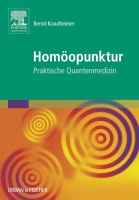
Themenwebsites
Medizin A - Z
im Info-Netzwerk
Medizin 2000
2.1.2026
![]()
|
Testosteron-Therapie bei gesunden älteren Männern wirkungslos ?Von Dr. med. Jochen KubitschekAllein in den USA erhielten im Jahr 2002 rund 800.000 Männer - oft auf deren ausdrücklichen Wunsch - von ihren Ärzten das männliche Sexualhormon Testosteron verordnet - meist in Form von Testosteron-Gel. Jetzt legte eine hochrangige Untersuchergruppe die Resultate einer kritischen Durchleuchtung der vorliegenden wissenschaftlichen Beweise für die Wirksamkeit der Therapie vor. Im Gegensatz zu den aggressiv vorgetragenen Werbeaussagen der Produzenten von Testosteron-Präparaten konnten die unabhängigen Wissenschaftler bei ansonsten gesunden Männern im fortgeschrittenen Lebensalter keinerlei Hinweise auf eine Wirkung der Therapie mit Testosteron finden. Damit wird die These bestätigt, dass Testosteron nur bei jenen Männern Anwendung finden sollte, deren Testosteronproduktion, z.B. aufgrund der operativen Entfernung der Hoden, völlig versiegt ist. Im Gegensatz zu den Frauen nimmt die Hormonproduktion im Alter bei den meisten Männern nicht nahezu automatisch ab. Wenn aber kein deutlicher Hormonmangel vorliegt, kann die Zufuhr von zusätzlichen Sexualhormonen keine positive Wirkung entfalten. Zumindest beim Sexualhormon Testosteron gilt der Spruch "Viel hilft auch viel!" offenbar nicht.
Testosterone Derided As a Health Supplement - Report Discourages Widespread UseThere is no evidence that the testosterone being used by a growing number of American men to boost their strength, mood or virility is doing them any good despite the claims being made for the hormone, an expert panel of doctors concluded recently. In a major report from the congressionally chartered Institute of Medicine (IOM), the panel said testosterone is "inappropriate for wide-scale use to prevent possible future disease or to enhance strength or mood in otherwise healthy older men." The Food and Drug Administration has approved its use only for men with a particular medical condition, but many more have sought it. Testosterone was prescribed for more than 800,000 men last year, the panel found, including many who believe it can help them build muscle, sharpen their thinking, increase their libido and slow aging. But the IOM panel concluded that there is insufficient research to document these benefits in otherwise healthy men, or to gauge the magnitude of known increased risks of prostate cancer and blood clotting. "For men whose testosterone is already in the normal range, there is no proof that it makes them better in any way," said panel member Deborah Grady of the University of California at San Francisco. "If there is no proven benefit for them, they shouldn't be taking testosterone no matter what the risk." Although women undergo a sudden decline in the female sex hormone estrogen during menopause, most men experience a gradual tapering off in testosterone production that begins in their forties and continues at about 1 percent a year. That decline, sometimes referred to as "andropause," is the subject of medical debate, with some researchers saying it is predictable and normal and others saying it is associated with diseases and conditions that can be kept at bay by taking additional testosterone. The FDA has approved testosterone only for hypogonadism, a steep decline in hormone production triggered by surgery or disease that harms the testes or pituitary gland. But the IOM panel concluded that a significant majority of the more than 1.75 million testosterone prescriptions in 2002 were for men who did not have the condition. Once the FDA has approved a drug for one condition, doctors can legally prescribe it for any medical purpose. Such "off-label" uses are widespread -- and sometimes controversial. The sharp increase in testosterone use since 1999 coincided with the FDA's approval of new and easier ways to administer the drug. Testosterone used to be given only by monthly injections, but men can now get it as a patch or a gel. Because of the way testosterone acts in the body, it is not given in pill form in the United States. The panel, which the National Institute on Aging and the National Cancer Institute asked to review the issue, called for a series of small studies to determine whether the hormone can help men cope with some of the predictable effects of aging. It said the studies, which have been on hold while the IOM studied the issue, should not include younger men because they were expected to receive less benefit for the same risks. At several points in its report, the panel referred to the dramatic turnaround among researchers and doctors regarding the usefulness and safety of estrogen therapy for post-menopausal women. The hormone had been widely prescribed to reduce the physical discomforts that can accompany menopause and to potentially improve the long-term health of older women until a major federal study found last year that the risks of estrogen outweigh the limited benefits. As a result, usage has plummeted. But even as the medical consensus on estrogen was changing sharply, men were increasingly asking doctors for testosterone. The IOM study reported that the number of men taking it more than doubled between 1999 and 2002, and the number of prescriptions almost tripled. Panel Chairman Dan G. Blazer of Duke University Medical Center said the number of men taking the drug has continued to increase sharply, with more than 2 million prescriptions expected this year. Some of the increase has been driven by aggressive advertising, much of which holds out the hope of the very benefits that the report said have never been confirmed by rigorous clinical trials. On the Web site for the market leader AndroGel, for instance, manufacturer Solvay Pharmaceuticals asks: "Fatigued? Depressed mood? Low sex drive? Could be your testosterone is running on empty." Gabrielle Braswell, spokeswoman for Solvay, said the company is pleased by the IOM recommendation for more study and did not quarrel with the panel's concerns about broad testosterone use. "We believe it is appropriate to use [AndroGel] for the conditions approved by the FDA," she said. Blazer said that his group was not urging doctors to stop prescribing testosterone off-label for otherwise healthy men, but that physicians and their patients need to "be thinking more carefully about its use." William Hazzard, a professor at the University of Washington School of Medicine, said the testosterone issue is becoming increasingly important with the aging of the baby-boom generation. "We're concerned that a population-based drive to increase testosterone use could be trumping science at this instance," he said. In a statement, the National Institute on Aging said it would consider conducting new studies. The statement added that "although some older men who have tried these treatments report feeling 'more energetic' or 'younger,' testosterone therapy remains a scientifically unproven method for preventing or relieving any physical or psychological changes that men with normal testosterone levels may experience as they get older." Some doctors, however, said the report seems to miss the fact that testosterone has been beneficial to many men. "There is a disconnect between some of the conclusions and recommendations that come out of this, and what I and other doctors see in clinical practice," said Abraham Morgentaler, a professor at Harvard Medical School.
|
|
|
|||
Das Medizintechnik-Unternehmen Specialmed hat sich auf Atemgas-Analysen spezialisiert und bietet Therapeuten und betroffenen Patienten kleine, leicht zu bedienende Atemgas-Analyse-Geräte an.
Schwerpunkte der Anwendung sind der zum Management einer Asthma- und COPD-Therapie geeignete FeNO-Atemtest - und der H2-Atemtest der eine schnelle und unkomplizierte Diagnose einer Laktose-Unverträglichkeit dient.
Nützlich ist auch der ToxCO-II- Atemtest, da er die Erkennung von leicht zu übersehenen, lebensbedrohlichen Kohlenmonoxid-Vergiftungen ermöglicht.
Dieser Test unterstützt auch die Rauchenentwöhnung und senkt bei Ex-Rauchern das ständig vorhandene Rückfall-Risiko.
Atemgas Analysen
Atemgas Analyse Geräte
Nobreath für den FeNo-Atemtest
Gastrolyzer für den H2 Atemtest
Smokerlyser u.a. für die Raucherentwöhnung
![]()
App-Download und Anmeldung

Atemgas-Analysen unterstützen Diagnostik und das Therapie-Management wichtiger Krankheiten.
Die Messdaten sind von Ärzten und betroffenen Patienten schnell, kostengünstig und nebenwirkungsfrei zu erheben. Specialmed hat sich auf Atemgas-Analysen spezialisiert und bietet innovative Atemgas-Analyse- Geräte an.
Schwerpunkte sind der FeNO-Atemtest zur Asthma-Diagnose und der H2 Atemtest zur Diagnose einer Laktose-Unverträglichkeit sowie der CO-Atemtest zur Unterstützung der Rauchenentwöhnung.
Und hier gehts zum Specialmed-Shop
 Algen - Vielfalt aus dem Meer
Algen - Vielfalt aus dem Meer
Speisealgen sind in der asiatischen Küche weit verbreitet und in Europa in erster Linie als Bestandteil von Sushi bekannt. Man unterscheidet zwischen Mikro- und Makroalgen.Mikroalgen werden als Nahrungsergänzungsmittel angeboten - jetzt auch in Bio-Qualität. Die bekanntesten Mikroalgen sind Spirulina, Chlorella, Astaxanthin und AFA .
Gesunde Kinder: Was viele Frauen nicht wissen - ein Mangel am Vitamin Folsäure sollte schon vor Beginn einer Schwangerschaft durch die Einnahme von Folsäure-Tabletten ausgeglichen werden. mehr lesen
Dieses Medikament heisst Folarell und jede Frau kann es in der Apotheke ihres Vertrauens rezeptfrei als "Pille zur Anti-Baby-Pille" zu kaufen. Oder bequem hier in der online Apotheke bestellen.

Bio-Nutzhanf-Produkte: Liebhaber unverfälschter Naturprodukte wollen die Kräfte der Natur nutzen. Innovative deutsche und österreichische Unternehmen stellen in enger Zusammenarbeit mit engagierten Bio-Landwirten Nutzhanf-Produkte her, die ausschließlich aus legalem, EU-zertifiziertem, Saatgut gezogen werden. Sie enthalten Cannabidiol (CBD)und Cannabigerol (CBG).

Homöopunktur
Praktische Quantenmedizin.
Dr. med. Bernd Krautheimer.
Die durch die Kombination von Homöopathie und Akupunktur erzielten Synergieeffekte ermöglichen ein optimales ganzheitliches Therapie-Ergebnis.

Der Sanorell Vital-Test hat ergeben, dass 47% der Frauen und 45% der Männer nicht ausreichend mit Vitaminen und Spurenelementen versorgt sind.
Der Sanorell-Vital-Test zeigt, ob es sinnvoll ist, einen entdeckten Mangel durch passende, in jeder Apotheke rezeptfrei zu kaufende Nahrungsergänzungsmittel auszugleichen. Über die Versandapotheke Fixmedika können Sie sich die Vital Plus-Kombination kostengünstig zusenden lassen.
Deutsche Verwaltungsgerichte haben den Weg freigehalten, so dass die seit vielen Jahren beliebte Thymustherapie auch in Zukunft auf dem Wege der Eigenherstellung der Thymus-Peptide legal durchgeführt werden kann. Das Unternehmen Sanorell Pharma verfügt über alle behördlich vorgeschriebenen Genehmigungen und unterstützt die an der Thymustherapie interessierten Therapeutinnen und Therapeuten aktiv bei der Herstellung der Thymus-Medikamente.
|
|





